Note: This post may contain affiliate links which means if you click on a link and purchase an item, we will receive an affiliate commission at no extra cost to you.
This post is brought to you by some essentials Meredith travels with: a journal, a puffy coat, and earplugs.
This is the latest interview in a series featuring digital nomads talking about their lives and lessons (click here if you want to be interviewed). The goal is to help demystify the process of making money online, wandering the world, and living an unconventional life!
Meredith runs a successful business teaching people how to make money from grant writing. In her interview below, she offers invaluable advice for how to start nomading and/or start your own remote business. Be sure to check out her course and community if you’re interested in grant writing!
Thank you for being here with Freedom Is Everything, Meredith!
Key takeaways from Meredith’s interview:
“What originally inspired me out of college was the question: ‘How do I architect my life to make a great living and have geographic flexibility?’ For me that meant, splitting my time between my family’s cattle ranch in Wyoming, a month of traveling, and wherever else I called home. Building a life you love requires a series of consistent and intentional decisions.”
“If you feel like you are on a content creation hamster wheel, look at how you can simplify. We send all our leads through an email sequence, for instance, so I no longer write weekly newsletters. That saves half a day every week! Look at how your activities correlate to sales. If they do not, then stop doing those things. Think about how you can make each move count and keep your business model as simple as possible. Focus on growth 80% of the time, and you will scale.”
“Feeling out of your element is a perfectly normal experience when you are pushing yourself to do more. However, you have a choice if you let it limit the quality of your life or if you decide to move beyond them. Study resources like the Dunning-Kruger effect to understand when imposter syndrome is likely to pop up in your life and what you can do to climb out of it. The secret is growing your confidence and competence in whatever you do. And, being okay with the fact that personal growth requires doing things that scare you, as cliché as it sounds.”
Table of Contents
Introduce yourself! 🙂 Who are you? What do you do for work? And what is your nomadic story?
Howdy! 🤠 I’m Meredith, an entrepreneur, community leader, author, and outdoor adventurer. I am part of Geeks in the Woods, a wave of new-age pioneers building technology startups from remote, yet connected Valdez, Alaska.
How do I handle the dark? I love it! It is a restorative time on the heels of a sleepless summer fueled by the midnight sun. My partner and I split our time between Valdez, Alaska, and wherever else we want to explore in the shoulder seasons.
My co-founder and I help those looking for a career change learn how to get paid as grant writers, so they can build a life they love. We do this through the Grant Writing Unicorn Collective, a year-round program with an online course, community, and coaching. We have lots of nomads or want-to-be nomads in the Collective!
I feel spoiled rotten most days. I wake up when I feel rested. I listen to the birds. I might hear Louie the Loon on the lake or watch Arctic swans fly by. I work in a large tent or a gorgeous tiny house. I take a few hours every day to hike or ski. Moving my body helps me feel refreshed for a strong afternoon of work, where I am unrelenting in my focus to grow our scrappy lil’ startup to $1 million in revenue.
We round out our evenings making home-cooked meals and maybe an evening water ski or sauna. It is a beautiful life, which came to be with these principles:
- Define how you want your life to look (i.e., flexibility, financial security, friendships, etc.).
- Have one clear priority that guides decision-making. It can take years to become true, but it should be big and important to you.
- Be unafraid to make hard decisions, and reward yourself the faster you make them. (Failure in my book is being unwilling to make something hurt in the short-term for a better outcome in the long-term.)
What inspired you to start nomading? And how has nomading changed your perspective on life?
Full disclosure: living out of my backpack and traveling the world is not a priority right now. In the phase of life I’m in (early 30s), I want to feel connected to my community, which I find comes from physical presence to build relationships.
That said, we fill our lives with micro-nomad moments. I wrote my book, How to Write a Grant: Become a Grant Writing Unicorn, from a remote island in Alaska for 10 days. Later this summer, we will take a ferry to another “off-the-grid” community with nothing but our laptops and gravel bikes.
What originally inspired me out of college was the question: “How do I architect my life to make a great living and have geographic flexibility?”
For me that meant, splitting my time between my family’s cattle ranch in Wyoming, a month of traveling, and wherever else I called home. Building a life you love requires a series of consistent and intentional decisions.
A nomad lifestyle looks effortless. My life certainly feels that way now! But, it did not start that way. It started with having the courage to walk my own path and make sacrifices to build a dream.
Please tell us the detailed story of how you started your business.
Hands down, the easiest business to start is freelance consulting. You need a laptop, internet, and someone willing to pay you. With over 48% of the workforce slated to be contractors by 2025, there are large market forces at play pushing more people into freelancing than ever before.
You have a competitive advantage by wanting to work independently. (Not everyone wants to be forced into contracting.) You will be more receptive to trying new things and finding a path that works for you.
Your path might not go the way you originally plan. I had a much sexier business idea in mind when I quit my corporate job. Within two months, I realized I didn’t have a business model and was running out of cash quickly. It turns out an idea is not enough to prove someone is willing to pay you for it.
To avoid getting a job at all costs, I started teaching others to write grants through workshops. I had previously been a grant writing consultant for a global firm, where I had secured $42 million in grants throughout the US for large infrastructure projects.
I soon grew frustrated with live workshops as an individual can only take in so much information in one sitting. They weren’t achieving the transformation I hoped. On a whim, I decided to try out teaching online. I fumbled along, guessing what to do next, and made a whopping $2,000 in my first year.
I made every mistake a person can make. I then took Amy Porterfield’s Digital Course Academy training, and that is when I turned around my business. I grew the course to $100,000 in revenue but hit yet another ceiling. During this time, I subsidized my online course with grant writing consulting revenue.
Consulting is a great way to bootstrap your dream startup. You can move them along in parallel until deciding to go all-in on your dream, with zero debt.
If you do not have a skill set you can sell others, it can be extremely helpful to consult first. You will find your own unique methods for doing things that could be helpful to others in the future.
The time had come that I was tired of being stretched thin between two businesses. I decided to stop consulting and devote myself entirely to the online course. I proceeded to lose thousands of dollars a month. The business model was a disaster. I charged a small fee and served a customer for a lifetime. It was not scalable and did not give me recurring monthly revenue.
Around this time, I found a co-founder to work with. If you can build a relationship with someone who has complementary skills to your own, do it. Start by freelancing together. It is a good way to test the durability of the relationship.
Together, Alex and I overhauled our business model. We conducted a series of informational interviews to uncover what our favorite customers wanted and needed. We discovered that technical grant writing education was but a fraction of what they wanted. They were stuck figuring out how to turn that into a viable career you can do from anywhere.
Fast forward just one month, and we launched the Grant Writing Unicorn Collective, a year-round program designed to help you pull off a career change and build a 6-figure freelance business (or land a remote job).
We have team members throughout the United States. We get together in Alaska once a year for a live retreat. Alex and I both travel a lot, splitting our team between working together or working from home.
It has taken a lot of long hours to get to the point we are today ($30k in monthly revenue and growing), but the beauty is that it never feels like work. We love what we are doing! That is the beauty of betting on yourself and taking complete responsibility for your life experience.
What advice would you give to someone who’s thinking about nomading?
My first trip abroad was to Thailand. Nothing smelled, looked, or felt familiar, with the exception of Coca-Cola and Pepsi signage everywhere. The buildings were different. The taxis were all colors of the rainbow. The lizards freaked me out. I didn’t know what to do with the chicken foot in my soup. Language barriers. It was all new.
I thought, maybe I’m not cut out for traveling like I had hoped. Fortunately, this onslaught of overwhelm and fear dissipated with the warmness of the locals. Language barriers be damned, we communicated with curiosity and gratitude. They helped me see things I had not noticed before. Like what fruit really should taste like. Or how to find fun markets off the beaten path.
Before I went on this trip, my best friend from college sat me down to say:
“When it comes to traveling, everyone says you will have so much fun! But, here is what you need to know. Traveling can be really hard. It can be stressful. You will have moments you break down and cry. You might feel lonely from time to time too. I want you to know that what you experience is normal. Despite the hardships you face, it is worth it for the experiences and memories you make and the person you will become.”
Her words kept me going through those emotional low points, recognizing I was not alone in how I felt. Keep that in mind if you are feeling anything less than elation. You become your own best friend in these moments. The forced introspection will help you grow 10x faster than you will playing it safe.
Have your journal handy. It will help you get out your thoughts and retool any spiraling thoughts into a positive belief. Before you know it, you will have adapted to your new environment and love the adventurous life you are living.
What are the 2-3 favorite places where you’ve lived/traveled to and why?
My favorite place on earth is here in Valdez, Alaska, at our Geeks in the Woods campus. It is a premier destination for digital nomads to work remote yet connected. It is an experiment in how work and life can be seamlessly integrated. You work in the Alaskan wilderness yet are connected to fiber-optic internet.
What I love about this place is how simple life becomes when you are here. You can think clearly. You are inspired with new ideas while out for a hike. You access a level of creativity within you that never fully blooms in a busy, loud city environment.
Geeks in the Woods is an ideal environment for a work-play-rejuvenate retreat. The types of people that join us tend to be software engineers, entrepreneurs, and other creative professionals.
Another place I loved living and traveling in was Spokane, Washington. I returned for a month this last winter to enjoy the Fellow Coworking space and beautiful urban scene. The Spokane Falls and updated Riverfront Park are gems for an afternoon run. The city has revived itself from a very organic bottom-up approach.
Since launching, what has been most effective to acquire/retain customers and scale your business?
Because I didn’t have an email list, I tried traditional methods for gaining traction, like speaking at conferences and even tabling a booth at industry events. Generally speaking, it was a waste of time.
However, when I was ready to launch my original course, I still didn’t have a stout email list. I decided to host a series of live workshops throughout my state (Alaska). I had four workshops that all sold out. The largest was in Anchorage at a fun theater pub with over 250 participants.
I had never done anything like that before. It was such a level-up moment of sink or swim. I taught a live 4-hour workshop and pitched taking my online course at the end. It worked great. I grew my email list, earned revenue on the workshops, and had about 70 students sign up for the course.
A combination of hard work and luck helped me make that official launch a success. I was pushed to delay the launch because it was such an ambitious schedule for selling so many seats, but had I done that, coronavirus would have prevented doing a live event!
We have since moved to an evergreen sales machine, meaning someone can watch our webinar and join whenever they please. Evergreen comes with its own set of challenges, like not creating a sense of urgency the way live launching does.
Live launching is exhausting, so we are thrilled to have that behind us. As we grow, we are now focused on the certain channels in our business that are working well. These are YouTube, SEO, and book sales. We focus on maximizing efficiency out of channels that are working well instead of trying to be everywhere.
Google SEO is a long journey, but it is worth it to get “free” leads. We launched our own website independent of Kajabi, and this has been game-changing. We went from 140 visitors per month to over 3,500 unique visitors today (nine months after website launch).
We also love YouTube. While we do not have a huge following (about 1,000), it is how many people find us. Visitors to our websites from YouTube stay for 23 minutes on average. The average website is lucky to have someone stay for two minutes. We have slowly improved our YouTube game with better tech, editing, and design. Realistically, this is an area we should be doubling down on!
The third major channel we find prospective unicorns is through book sales. Books are a commonplace for people to start when wanting to learn a new skill. I wrote the first draft of my book in five days. Self-publishing is not hard. In fact, as I write this, I’m in the midst of pushing the 2nd edition of the book, which beginning to published will have taken five weeks. No joke. Five weeks! Here is a free training I have on how to do this yourself.
If you feel like you are on a content creation hamster wheel, look at how you can simplify. We send all our leads through an email sequence, for instance, so I no longer write weekly newsletters. That saves half a day every week!
Look at how your activities correlate to sales. If they do not, then stop doing those things. Think about how you can make each move count and keep your business model as simple as possible. Focus on growth 80% of the time, and you will scale.
What digital tools do you use for your work/business?
Please note that you can bootstrap your business with fewer tools than this as you get started. We have grown to using these tools.
If we had to choose one tool that we would never give up, it is Asana. They had us at the unicorn that shoots across the screen when you finish a task.
Kajabi – To run our online course.
Slack – Duh, who doesn’t use this epic tool?
Instrumentl – A grant database tool we love.
ConvertKit – For email marketing.
Google Suite – Business emails and Google Drive.
GoLang SaaS Startup Kit – How we built our custom bomb dot com website.
Digital Solutions Team – Virtual assistant company. As soon as you can afford a VA, get one!
Simplecast – Hosts our free audiobook on grant writing.
1Password – Password account manager that you can share with your team.
Slicing Pie – How we split up company equity (i.e., ownership). You have got to read Mike Moyier’s book Slicing Pie if you are looking to go into business with others!
Grammarly – Make sure we do not make any silly mistakes in our writing.
UberSuggest – SEO and keyword research tool.
Gusto – Payroll making complex taxes and legal stuff easy peasy.
Canva – For no-brainer graphic design.
Contrado – Design absurdly cool company swag.
Xero – For bookkeeping.
What scale is your business at today, and what are your future goals?
Our online course revenue numbers from November 2020 share three important lessons. First – we were subsidizing our course business with our consulting income. When we took away consulting, the business was burning in the red. Our monthly burn rate was $16,000 (2.5 employees and business expenses). You can see the dilemma we faced with this screenshot of earnings:
We knew something had to change. We conducted a series of informational interviews and discovered our product offering wasn’t quite hitting on what our customer needed for the full transformation. After reworking our offering, tripling our pricing, and setting up as an annual membership instead of a one-time course, we have saved our business.
Here is a screenshot from the following month (December 2020):
That is almost a $20,000 difference in a single month! Plus, $7,000 of that is monthly recurring revenue now for the next twelve months.
At this growth rate, we expect to have a $500k year. That is a big difference from the $4k we made in the month of November!
For that reason, focus on your business model. Build a 7-star experience for your customers. Make sure you are not killing yourself in your offer, so you can be in this game for the long run.
For someone interested in becoming an entrepreneur in your field, what’s the best advice you would give? And what books, podcasts, thought leaders, or other learning resources do you recommend?
Here is my best advice, fellow entrepreneur!
#1: Focus. Focus, and then focus some more. Oh, it is hard. Even when you think you are focused, it’s so easy to sway here and there. Here is one way to think about it:
- One Product.
- One Market.
- One Channel.
- One Conversion Tool.
- One Year.
That means, you must focus on one ideal customer, with one product (like an online course), through one main distribution channel (SEO), and one conversion tool (a webinar), for one year.
Trust me, I know the struggle. I like to try new things as well, but often we quit an idea before it has time to get perfected. This also applies to who you serve and what you do. You should have one product for one customer. You can build a $1 million dollar business keeping things simple and focused.
Focus. Focus with laser intensity. Doing so will be your competitive advantage.
#2: Solve for your customer’s deep desire. Our original product taught our customers the technical skills behind grant writing, but that was only a fraction of what they needed and wanted. They wanted to know how to actually pull off a career transition. After 25+ deep-dive interviews and dissecting the exact words used by our ideal customer, we discovered what they really wanted: a flexible and fulfilling life.
Here is the tangible tip for you to run with:
- Schedule 20 interviews with your ideal customer.
- Record the call.
- Use a service like Temi to transcribe the call.
- Aggregate all interviews into a single Google Doc and study it!
Highlight their deep pains and aspirations. Then put the entire interview document into a unique word counter (lots of these are free online), and figure out which words are used most often. Build your single sentence describing what you do, and who you do it for, with those words/phrases. Use those words and phrases in your email copy, website, and talking points!
Here is a template for that sentence: I help [specific identity] achieve [tangible transformation] so they can [avoid #1 pain or achieve #1 desire].
#3: Helpful resources. We are not a SaaS business (software as a service), but we like to think of ourselves through a SaaS lens. They are always thinking about scale. For that reason, our favorite mentor in this space is Dan Martell. He has a vibrant YouTube channel and an amazing program for growing SaaS startups.
We attribute Amy Porterfield’s Digital Course Academy to getting to our first $100,000 in course revenue, and Haley Burkhead’s Recurring Profit program to give us a roadmap for where we are today. Both women have fabulous podcasts.
If I were to start my business all over again, here is how I would do it: Get a landing page up immediately with a lead magnet to start collecting emails. You don’t need to have a product built before you do this. Start building your email list from day one. If you don’t have an audience to sell, it won’t matter if you have the coolest course in the world.
Then, do interviews! Lots and lots of customer interviews. Your customer won’t tell you exactly how they want to learn, but they will provide golden nuggets for you. Do 20 interviews before building anything!
Consider soft-launching, where you pre-sell the course to validate true interest in the product while allowing you to build “as you go.”
Last tidbit! Focus on building processes as you go. Producing content and anything else you do over and over can get really overwhelming. Document your process as you go, literally writing out every step you take. Then, it gets easier when you have steps to follow, and it will help you when you start bringing on help!
Last, last tidbit! Consider building the business independent of your personal name and brand. Obviously, when you are just starting out, it’s strongly built around you and the success you got yourself or for others. But, if you ever want to sell your business or grow it to feature the expertise of others, you want a brand that can stand on its own. I don’t think this is a discussion topic brought up nearly enough in the course creation world.
If you’re a content creator (podcaster, YouTuber, blogger, etc.), tell us about your content creation journey and share some of your favorite content that people should check out!
Batch my friends! We batch six months of YouTube over a single month from scoping ideas to filming to editing to scheduling. That means that no matter what happens, we consistently drop a YouTube video per week.
I was becoming a chronic bottleneck for blogs, and a great blog post can bring us 2,500 new visitors per month. We now outsource blog writing for $1,000 a month for two stellar posts.
We recommend creating content that you do not have to keep creating – if that makes sense. We create content that can serve as a lead magnet or build trust. For instance, I went to the local radio station and recorded my book into an “audiobook/podcast” as a lead magnet.
Heck, we don’t even create content for Instagram! We create stories and reels but never trouble ourselves with time-sucking posts that nobody sees anyway.
Don’t let content confuse you with real revenue. You can create content until the day you die and never earn a living. It is important to connect any content creation you do with growing your business.
My favorite piece of personal content, however, is a blog post on what skiing taught me about starting a business.
If you only had a few minutes to live, what are the most important life lessons you would share with the world?
Take Responsibility. When you take responsibility and ownership for how you feel and the life you have, it will free you from the shackles of blaming. It allows you to extract lessons from situations, learn from them, and move forward. It is the most important virtue I live by and instill in our company.
Make Each Move Count. I learned this lesson in the hayfields growing up as a ranch kid when I was 14 years old and running an old 1956 tractor to put hay into windrows. My job required staying ahead of the stacking crew (the team that put the hay into the haystacks). They kept catching me, and I was growing frustrated. You can only bounce around so fast in a hayfield!
My father flags me down. He explains that there is a pattern in the hay if I look for it. His advice was to “make each move count.” Once I started looking for the patterns, I could see them. I became more efficient, and the gap grew between me and the stacking crew.
You can do the same thing. When you look for patterns and make deliberate choices about where you go, you pull ahead.
Crush Imposter Syndrome. Feeling out of your element is a perfectly normal experience when you are pushing yourself to do more. However, you have a choice if you let it limit the quality of your life or if you decide to move beyond them.
Study resources like the Dunning-Kruger effect to understand when imposter syndrome is likely to pop up in your life and what you can do about it to climb out of it. The secret is growing your confidence and competence in whatever you do. And, being okay with the fact that personal growth requires doing things that scare you, as cliche as it sounds.
What do you travel with that you couldn’t imagine traveling without?
My honey buns. Life partner. Boyfriend. Whatever you want to call him, he is my favorite addition to a vacation. We travel well together. He has a twin, and he’s single, so maybe you would want him as a travel buddy. 😂
I can’t go anywhere without a journal, a puffy coat, earplugs, and snacks.
I can be bad about losing important items traveling like phone and wallet. The problem has largely been remedied with a fanny packet from Free Range.
If you have a waterproof urban backpack that you love, please let me know. I need something to carry a laptop and all the aforementioned indispensables while biking.
What’s your favorite book and why?
Even when I was paying myself nearly nothing in my first year of business, I still “paid my savings.” I learned to pay myself first and live on the rest from the book, The Richest Man in Babylon by George Clason. I highly recommend learning the simple financial principles shared in this book to build your wealth.
It often feels like you are forced to choose between respectable earnings and a soul-sucking job or dirt-bagging it as a nomad. My life is proof that you can be a nomad and live what feels like a wealthy life. Building a business to support your lifestyle is one of the best ways to do this.
What small change has made a big difference in your life?
The Grant Writing Unicorn Collective has an unofficial book club, and the most recent book we read was “You Are a Badass: How to Stop Doubting Your Greatness and Start Living an Awesome Life” by Jen Sincero. I thought, I don’t need to read this book; I know I am a badass!
Oh, how very wrong I was. Not about the badass part 😉 but about how much I had to learn. I most valued how the vibrations you send out to the world is what you will attract. When you are around a debby downer, you feel the low vibrations, and it makes you want to avoid that person. The same goes for bringing high-energy vibrations and positivity into your interactions.
I took a scruple to the experiences in my life to see what stays and what goes. It has made a world of difference in energy management. I often found I had great energy when outward facing but then depleted before doing what I most cared about. Conducting a regular audit on what gives energy and takes energy has been a helpful way to fine-tune healthy living.
What is your philosophy on being happy and/or finding meaning/purpose in life? And any recommended resources for people navigating this journey?
Early in my career, I remember observing layoffs in the company I was working for and those in the industry. I was shocked to see who was let go. Often it seemed like it was the business development and marketing type people—my career trajectory. I realized that workplace resilience requires having technical skills.
Many of us have been able to scoot by without actually having all that much to show in terms of technical abilities. We have the attention span of a goldfish. We want lots of things and experiences that require money and time. On top of all that, we want a sense of purpose.
It is a tall order. An attainable one, but not something we can expect to be given for our good looks alone. A fulfilling life is at the intersection of intention, combined with action and hard work.
There is one more very important statistic we need to talk about. 48% of female freelancers make less than $25,000 a year. Men are four times more likely than women to earn more than $150,000 freelancing.
Houston, we have a problem. My purpose in life (again, if you can call it that, purpose is such a loaded term) is to inspire other women to try their hand at entrepreneurship. I do not care if it is a fun side hustle or if you go all in. What matters is that you value yourself enough to signal to others that they, too, should value your work.
Loving yourself is important, but you must accompany that radiating confidence with technical skills that solve real problems. Whether that is grant writing or something else entirely, make the commitment to develop yourself.
If you are not happy with your work and lifestyle, but you are not sure what to do for positive change, you are experiencing what we call the Unicorn Dilemma! It can be a lonely, frustrating place to be, but I encourage you to take solace in the fact that you are moving in a positive direction. Your investigative work has led you to research career options and invest in your self-development.
I want to warn you that a series of warning and stop signs will start popping up, telling you to go back to safety. The most common roadblock presents itself as imposter syndrome. I am pleased to report that you can grow beyond it and bring your vision for a life well-lived to reality.
How can people learn more about you and your work?
Send a DM on Instagram @meredith.noble or @learngrantwriting.
Curious if grant writing as a nomad career would be good for you? We have a counterintuitive way of teaching it. You can learn how here.



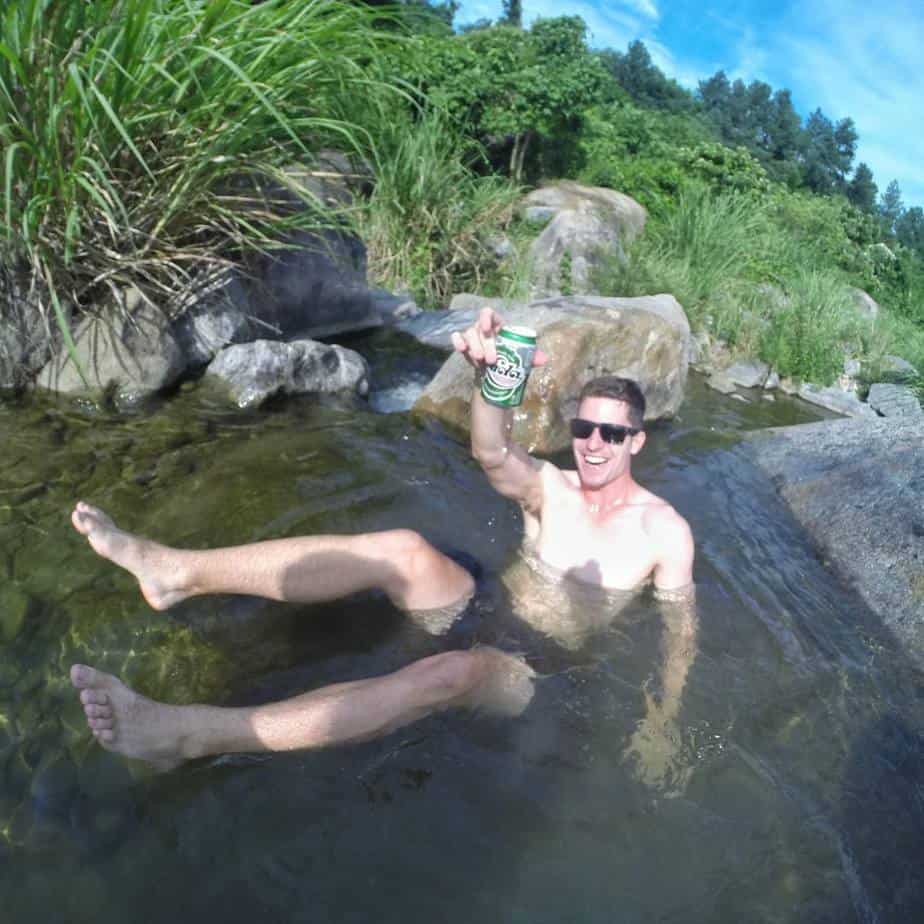
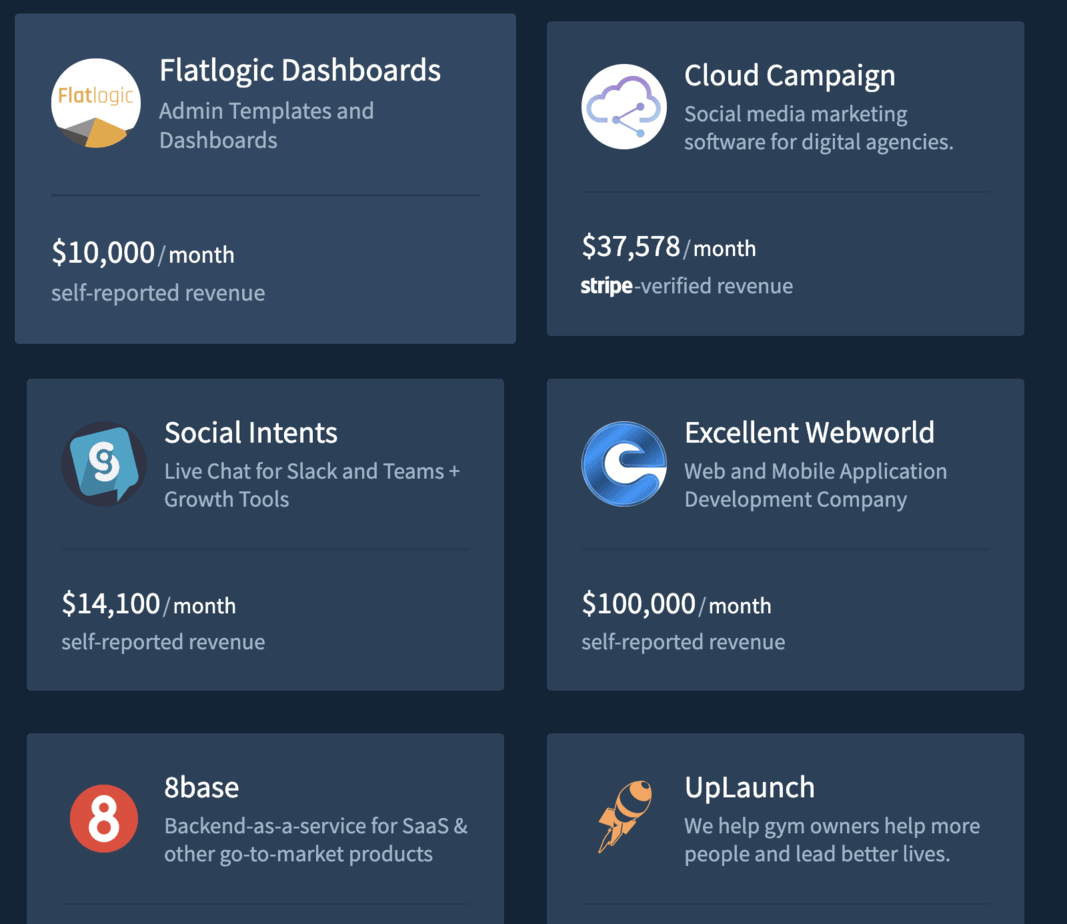
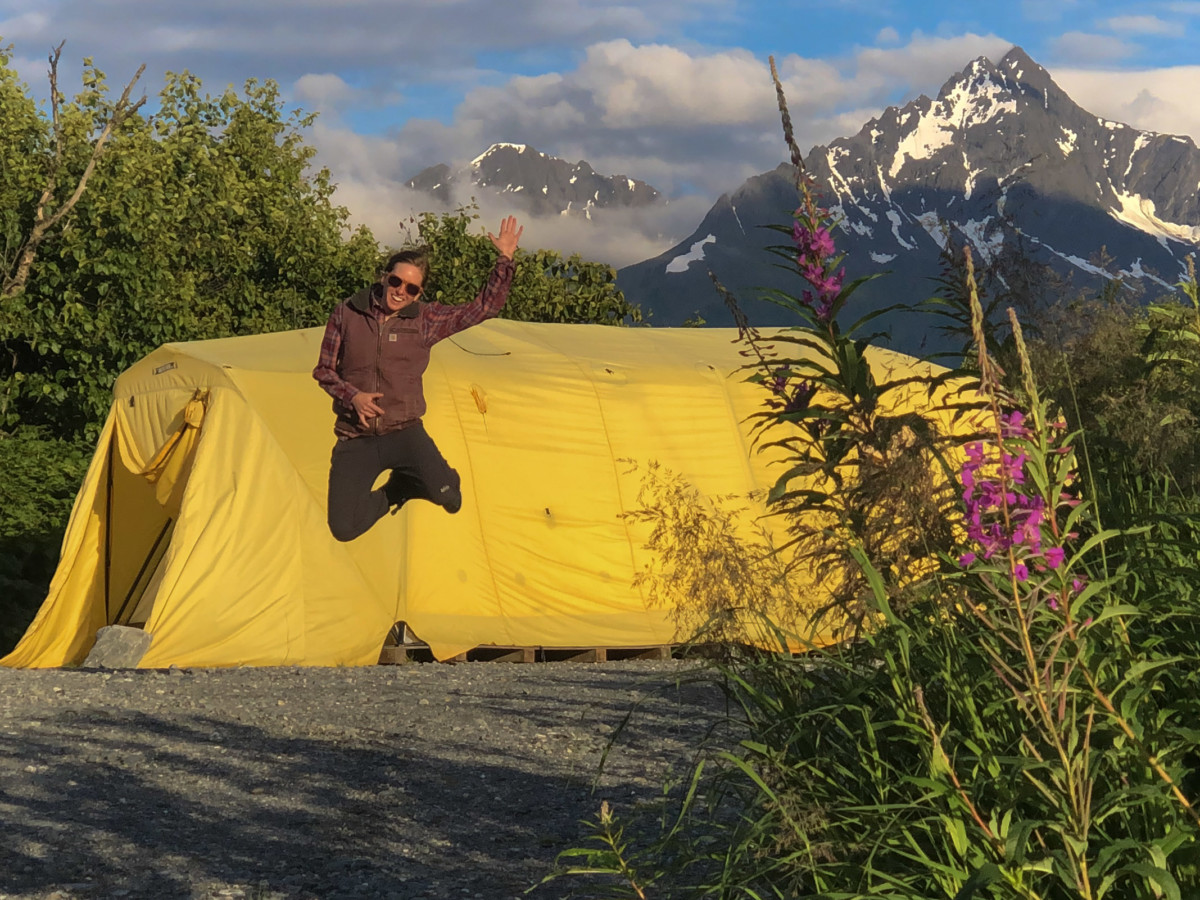
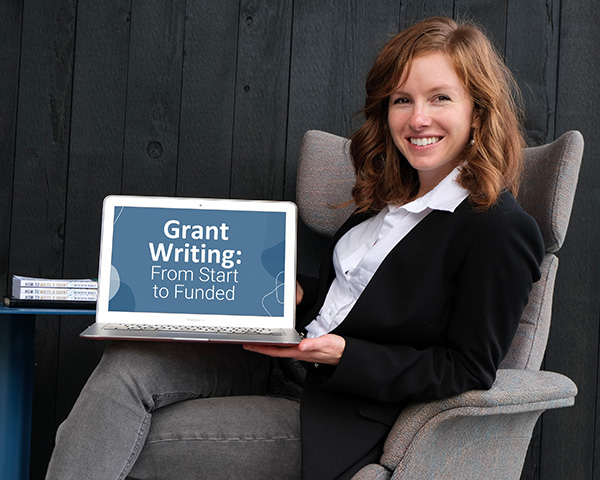
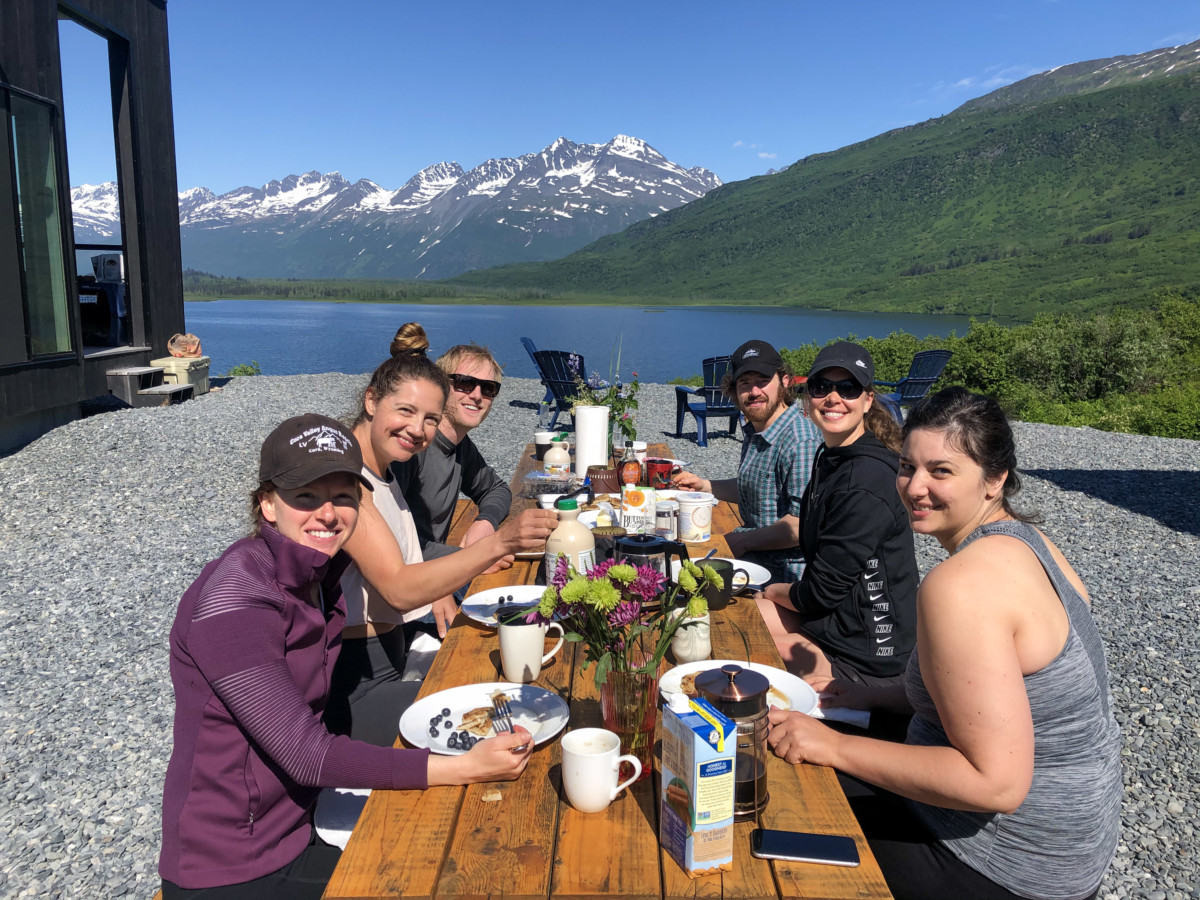
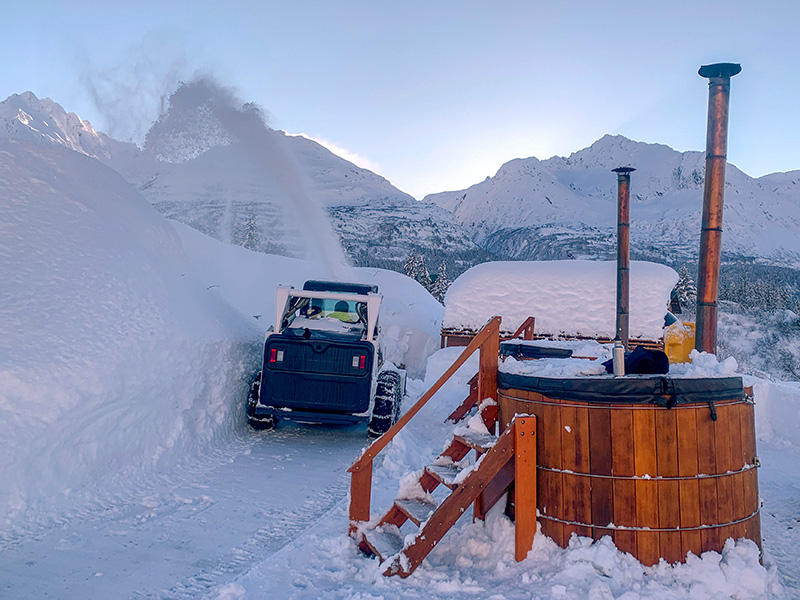
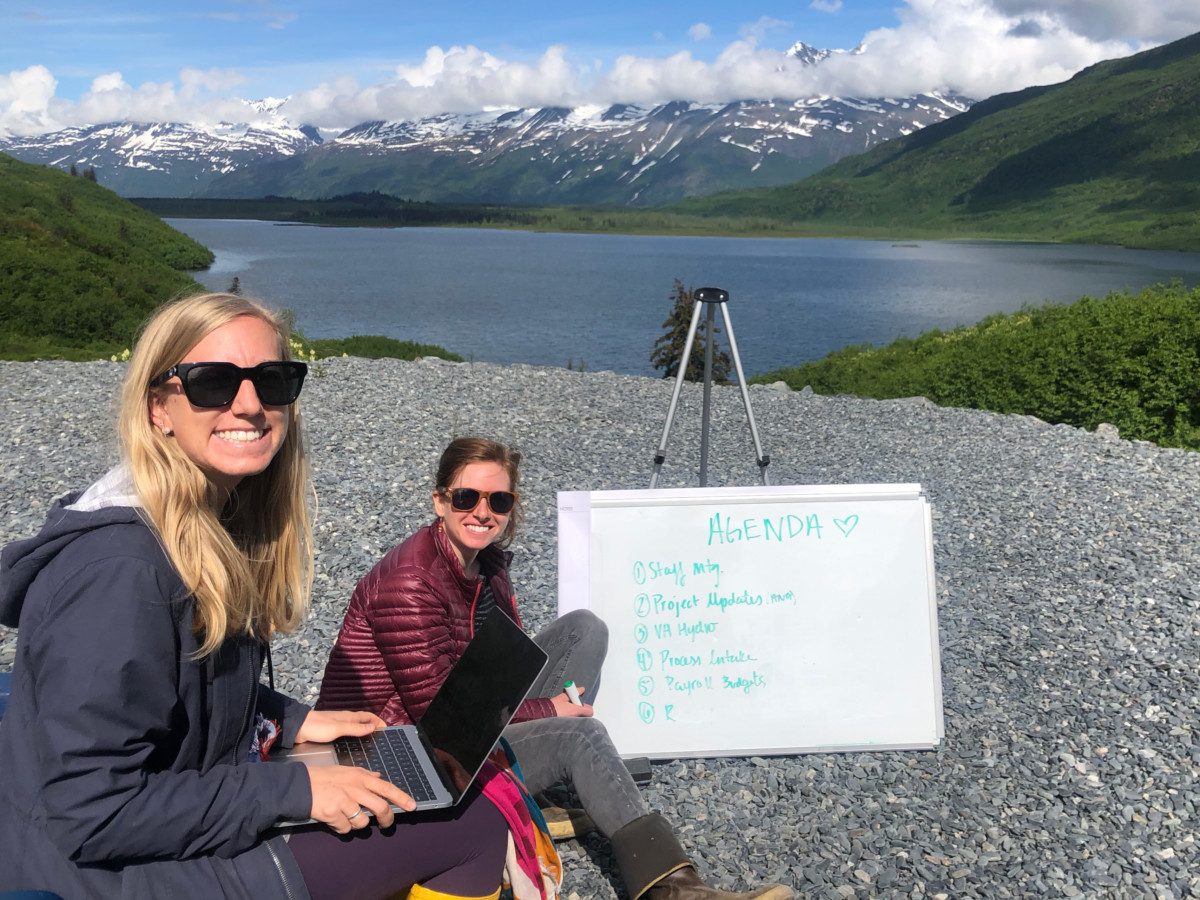


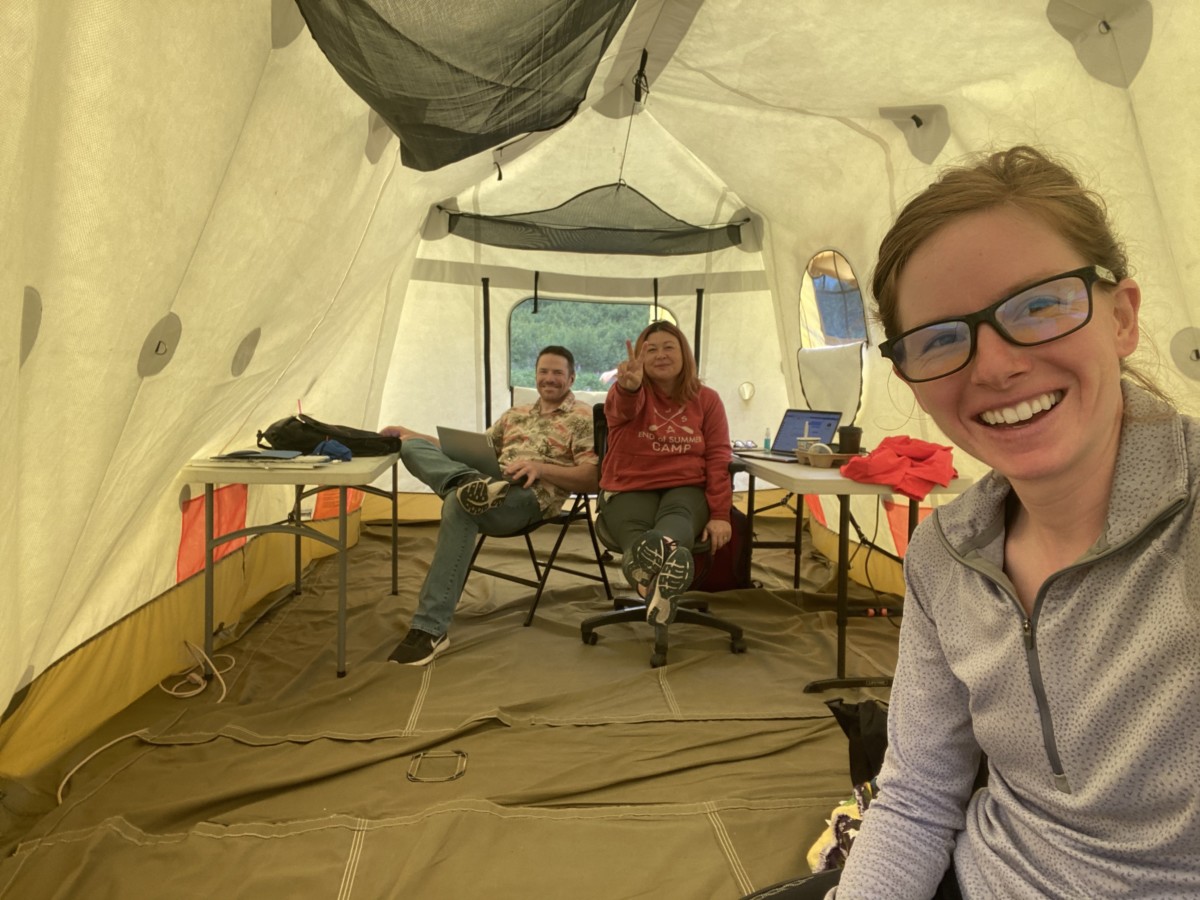
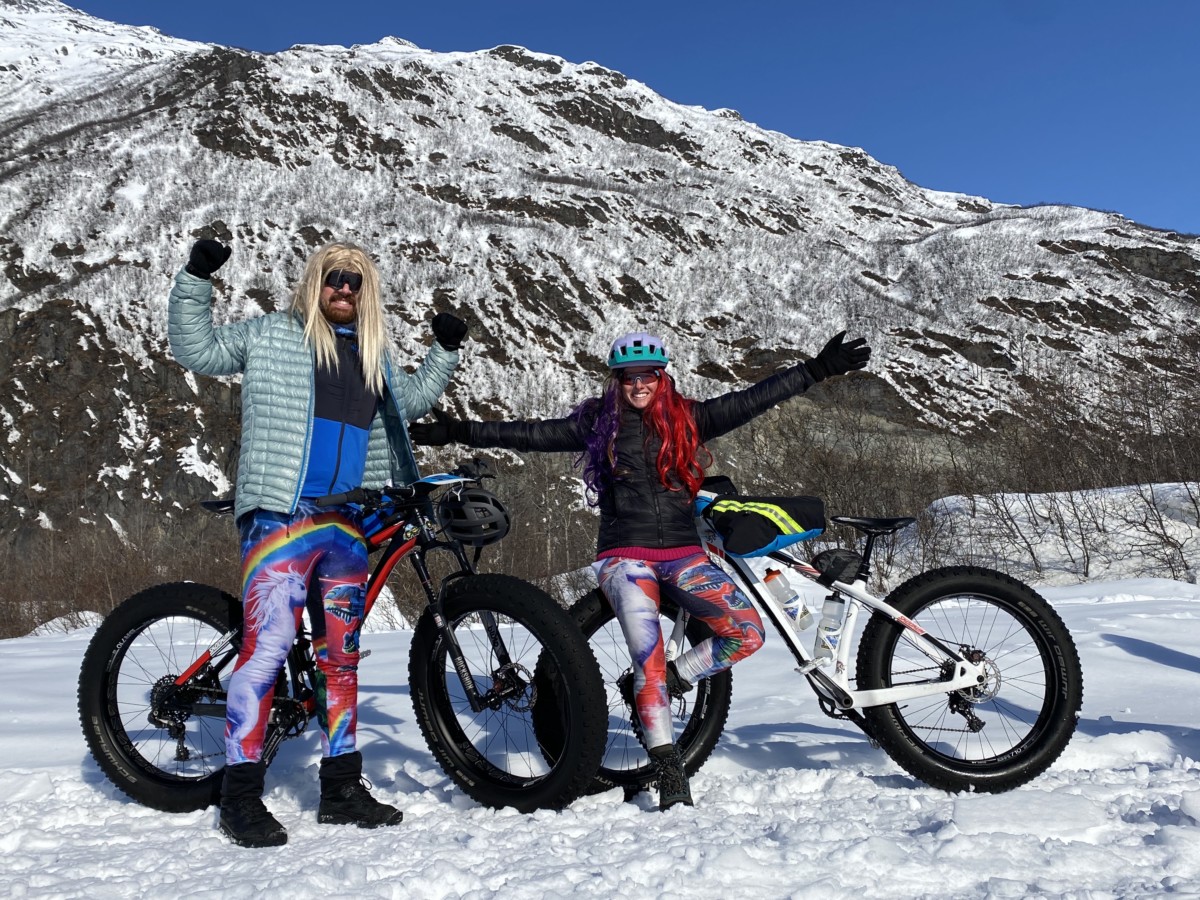
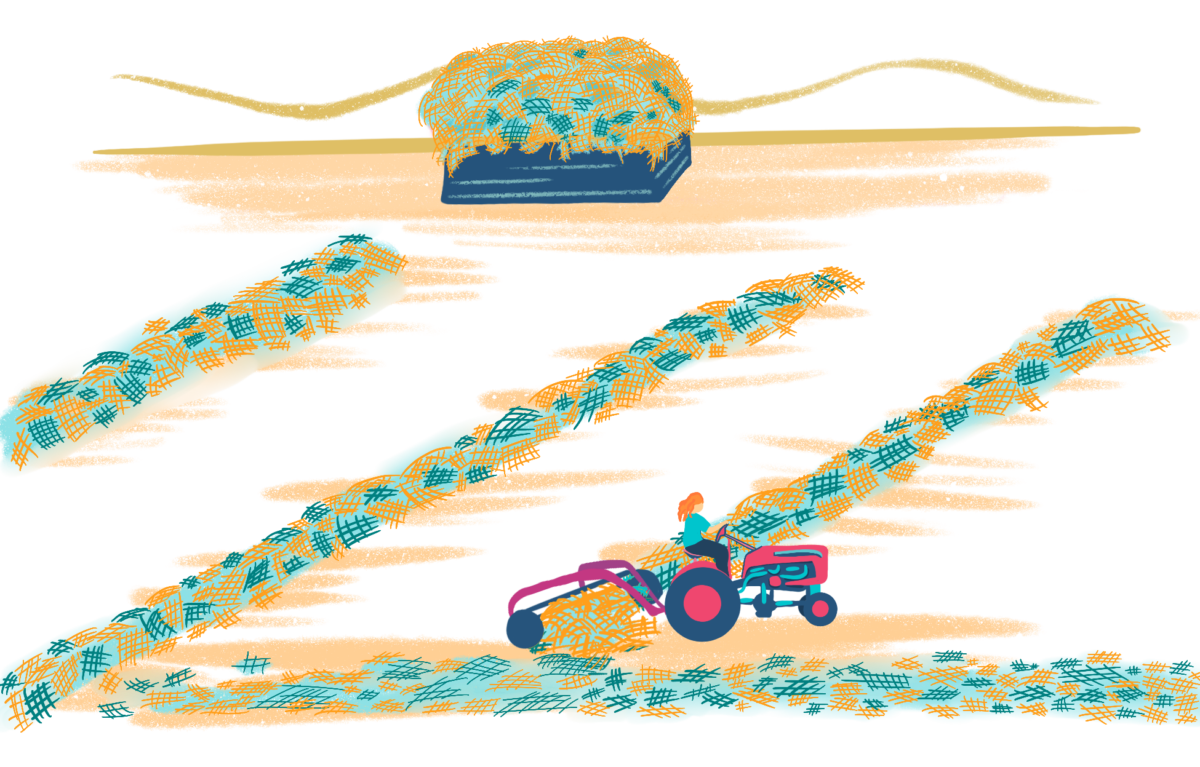
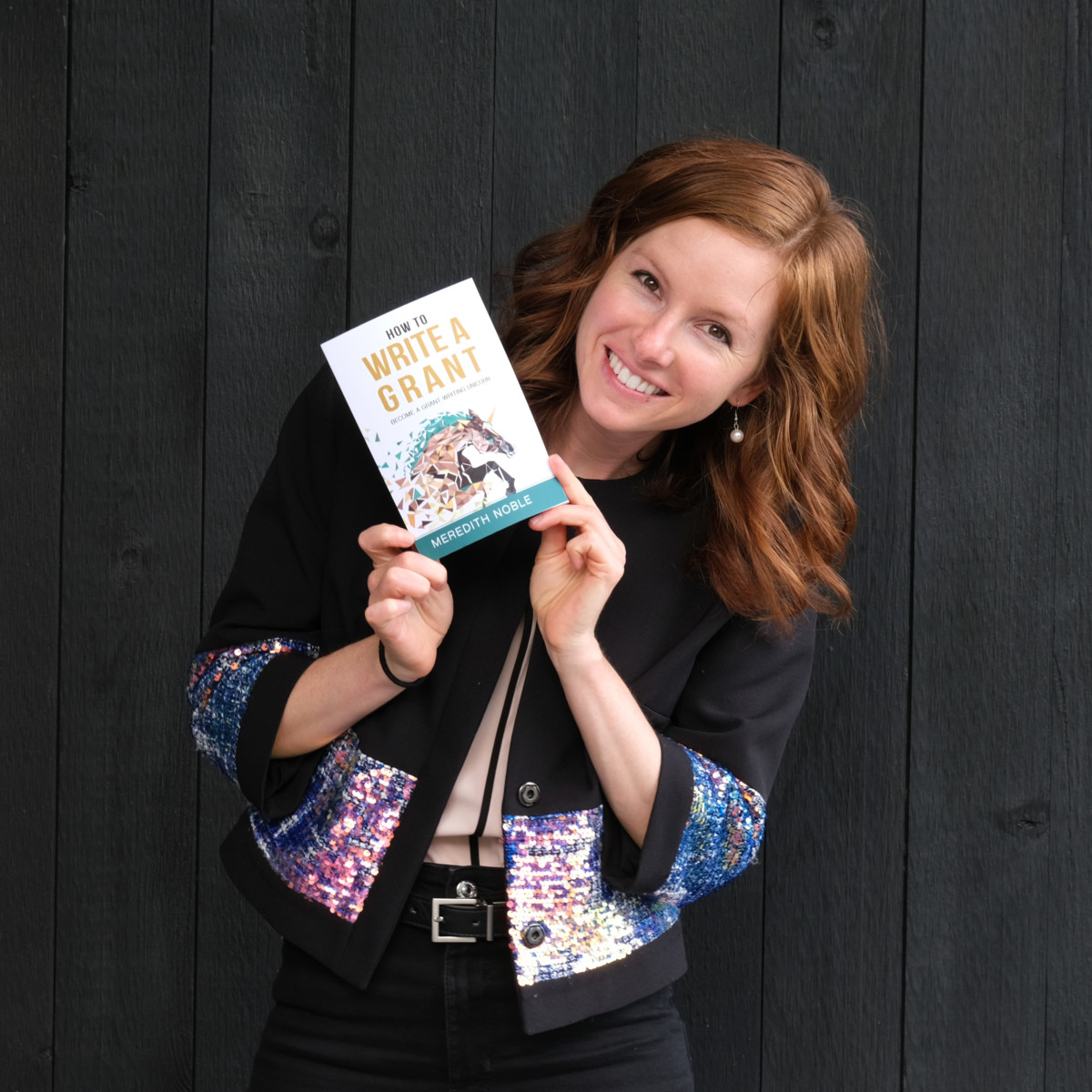
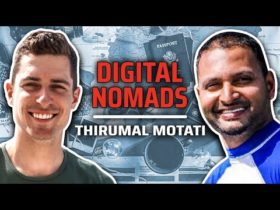
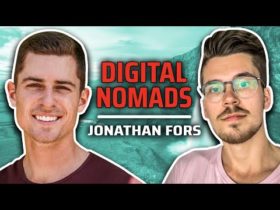
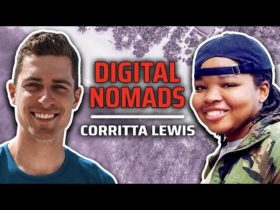
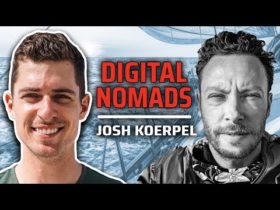
Leave a Reply
View Comments